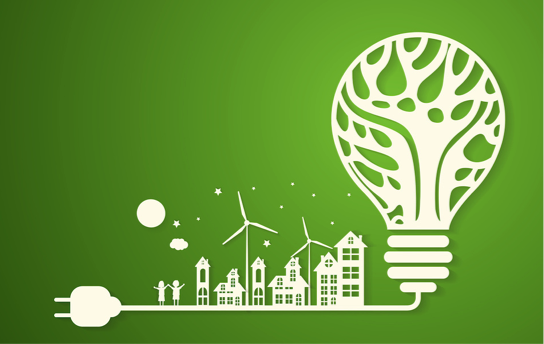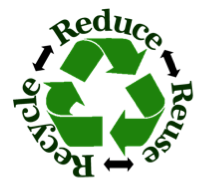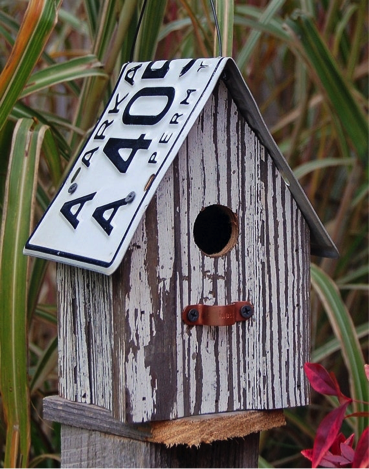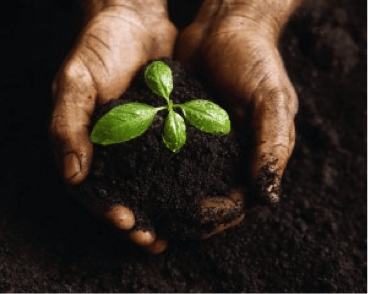1. Plant a Tree.
Go to your local nursery or garden center and plant a tree with a friend or child. Better yet, sponsor a classroom by purchasing tree seeds and have them plant the seeds and watch them grow. This starts a dialog about the importance of trees in our world.
The best time to plant a tree is twenty years ago. The second best time is now. -Proverb
2. Challenge yourself to use reusable bags.
Get yourself some cute reusable bags and keep them in your car. Moving forward, simply decline plastic bags from cashiers and don’t use individual bags for your produce at the grocery store. Scientists estimate that every square mile of ocean contains approximately 46,000 pieces of plastic floating in it (United Nations Environment Programme). So you can have a massive impact on that statistic by making this small shift to your shopping routine.

3. Conserve Energy.
Walk, ride your bike, take public transportation, or car pool to work and social activities. Turn off the lights and unplug appliances and chargers when not in use. Take shorter showers and don’t leave the water running when you brush your teeth, wash dishes, etc.

4. Recycle.
We have heard this most of our lives, but how many people are actually doing it all the time? Not all stores and restaurants offer recycling options and I know not everyone is like me and brings a cardboard beverage holder home to recycle versus just throwing it in the trash for convenience. Almost everything is recyclable these days, from paper products to electronics, so there is almost always a positive alternative to sending something to the landfill. According to Connecticut’s Department of Energy and Environmental Protection, recycling of one ton of paper saves 17 trees and 7000 gallons of water!
5. Plant your own vegetable garden.
Don’t have the space? Consider a container garden www.smartpots.com or find a community or school garden to share your green thumb. Even better – find a community garden that donates their harvest to a local food bank.
6. Replace plastic products with glass.
There are amazing alternatives to plastic now (Pyrex and Mason Jars are two of my favorites) and you can purchase glass cups, plates, tupperware and more without breaking the bank. Not only does this help you avoid the toxins in plastic, but it also reduces its overall production. “Plastics manufacture makes up 4.6% of the annual petroleum consumption in the U.S., using roughly 331 million barrels per year” (Plastics, Human Health and the Road Ahead). And as we know, the plastic itself isn’t really something you want in your life. Make conscious purchasing decisions when it comes to products commonly made of plastic.
7. Compost.
There’s no reason to throw out your organic food byproducts when you can easily compost it. If you live in a city and don’t need compost yourself, there are typically companies that will collect it from you for a small fee. You will not only be creating less waste, but by composting, the creation of greenhouse gases, like methane, is avoided. Additionally, “compost replenishes and revitalizes exhausted soils by replacing trace minerals and organic material, reduces soil erosion and helps prevent storm water runoff” according to Eureka Recycling. So by composting your food byproducts, you are actually helping more food grow!
8. Eliminate the use of household cleaners with toxic ingredients.
Most people don’t think of their household cleaners as pollutants. Unfortunately, just because we’ve assumed that cleaning supplies are doing just that — cleaning — it doesn’t mean they aren’t also contributing to smog and lowering the quality of tap water. (EPA) Instead of using the toxic cleaners, you can find make your own alternative cleaners to keep your home and surrounding environment safer… and squeaky clean!
9. Ask Yourself, Do I Need That?
Disposed of things end up being a major contributor to landfill waste. What we consume has an impact on all areas of the ecosystem. Stop buying things you don’t need. Better yet, it will save you money.

10. Build a Birdhouse.
Set aside a Saturday morning with the kids to build a simple house for the birds in your backyard. It will create a memory for your children, bring awareness to the housing needs of nature, and it will start a dialogue about Earth Day, everyday…
https://www.mycarpentry.com/license-plate-birdhouse.html
Make Earth Day a priority all year long and keep living Wholesome to the Core.



